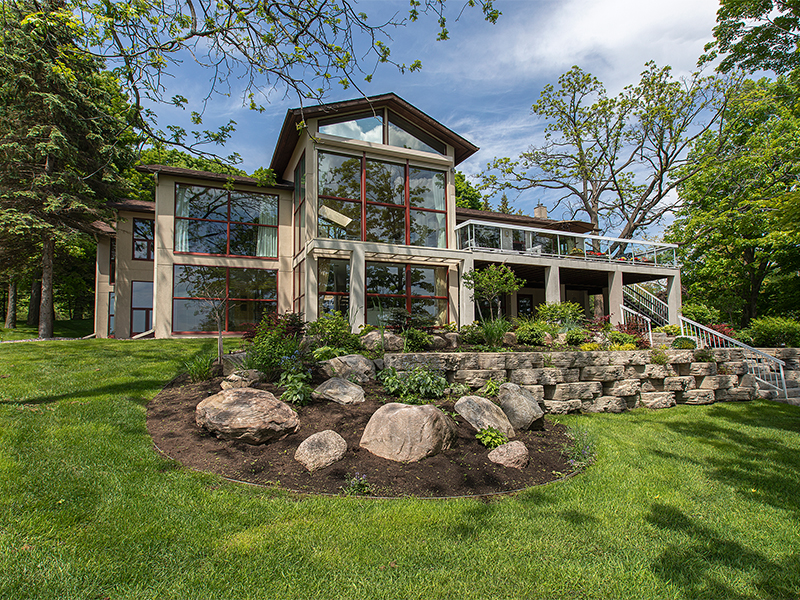
Getting ready to buy a Kingston house? Whether this is your first or second home purchase, it helps to work with a real estate professional who knows the market. Here are some tips to get you started.
| Table of Contents |
What to consider before buying a house
There’s nothing like living in Kingston. Nestled on the eastern banks of Lake Ontario, this famed limestone city offers an array of single-family homes, townhomes, and condominiums to suit each taste. It also has a fine selection of waterfront properties. With so many excellent choices in the market, choosing is truly the hard part. Here are some questions to narrow down the search:
What kind of home is best for you?
Is buying a detached Kingston house right for you? Or are you better off buying a condo or townhome? There are pros and cons to each property type.
-
Single-family homes, also known as detached homes, generally offer more space and privacy. Some detached homes are located within gated communities for enhanced security.
-
Condos are individual units within buildings or property complexes. Generally speaking, condo living comes with fewer repair and maintenance responsibilities. Many condo buildings are located within close proximity to offices, shops, restaurants, and other amenities.
-
Townhomes, or attached homes, share one or more walls with adjoining residential units. Townhomes typically offer more space than condos but entail less maintenance work than detached homes.
When deciding which property type is right for you, it helps to take the size and needs of your household into consideration. How many people are moving in with you? Do you have pets? School-aged children? How much storage do you need? And so on.
What features will your ideal house have?
Here comes the fun part – envisioning your dream home. Before starting the home search, make a list of must-have features. You can be as specific as you want. How many bedrooms should your home have? Do you need a two-car garage, dedicated home office, or a workshop for your hobbies? Would you like to have a garden or an outdoor pool? Writing down your non-negotiables will help refine the search and make it easier for your agent to find listings that match your criteria.
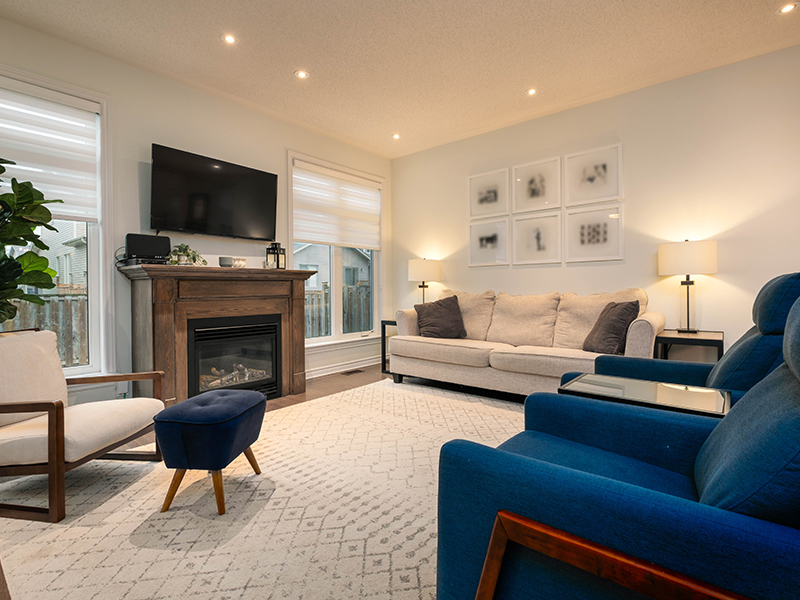
What size mortgage are you eligible for and how much home can you afford?
It’s generally advisable to get an estimate of how much you can borrow before viewing properties. To get an idea of how much home you can afford, shop around for a lender and compare rates and options. Lenders have a process for calculating the maximum loan amount you could potentially qualify for. They can also provide a rough estimate of your monthly mortgage payments.
This process is called mortgage pre-approval, prequalification, or preauthorization. Although getting pre-approved doesn’t guarantee actual mortgage approval, it will help you determine your budget as well as set parameters for the home search.
What are the expenses associated with buying and owning a home?
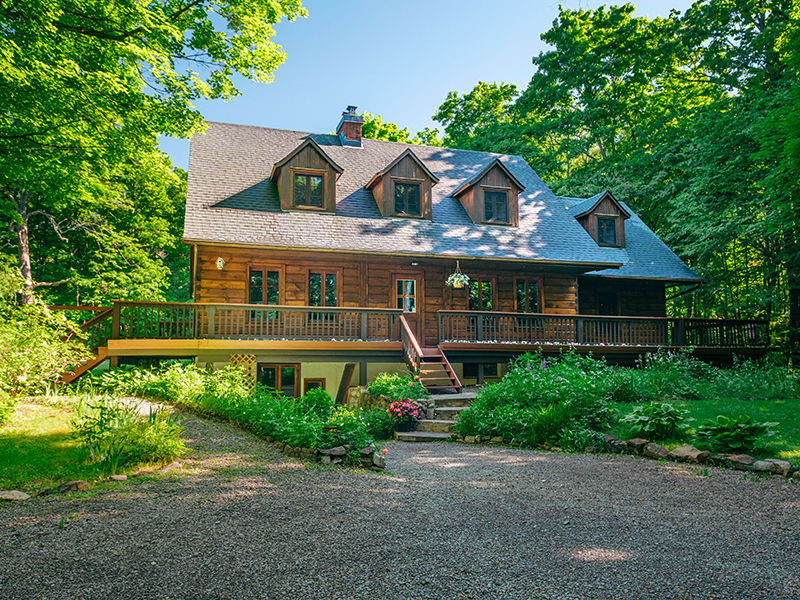
Aside from monthly mortgage payments, there are other costs to homeownership, including property taxes, insurance, maintenance costs, and association fees, depending on where you live. You may also need to invest in additional insurance coverage for a waterfront property.
If you’re buying an existing home, it helps to have an emergency fund to cover major repairs and home improvements. Even if the home inspection comes out clear, you could still find yourself dealing with leaks, cracks, water stains, and other issues within six months to a year of moving into your new home.
You may also want to set money aside for renovations, upgrades, and new furniture and decor. Moving into a Kingston house will put you in the mood to decorate, so set a budget for any decorating projects you have planned.
Why should you work with a real estate professional?
Working with a real estate expert will increase your chances of finding your dream home in Kingston. A professional will provide access to listings that match your preferences in terms of location, property size, home features, price range, and more. They can also stay on top of paperwork and deadlines to make the home buying process less stressful.
The home buying process in Kingston, ON
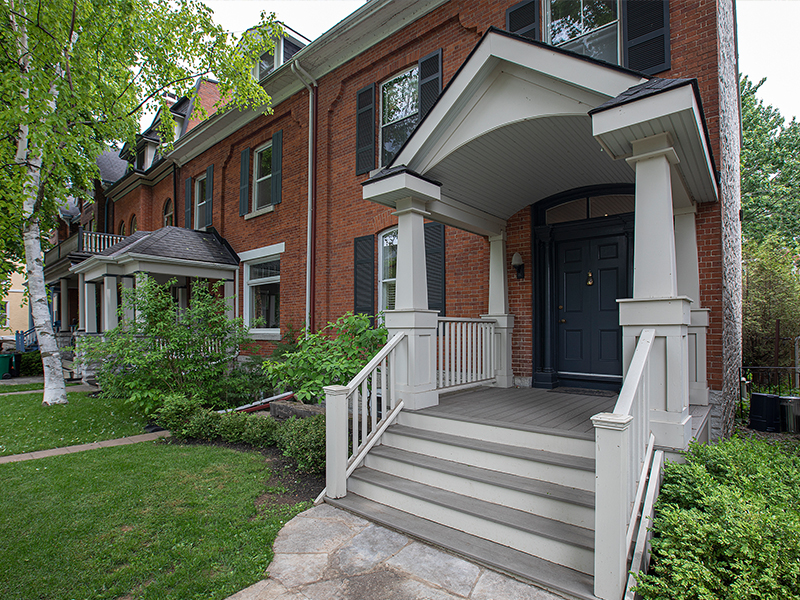
Setting a budget
Getting pre-approved for a mortgage will help you get a rough idea of how much home you can afford. A lender will go over your finances and provide an estimate of how much they can let you borrow. Once you have a number, you can start looking at properties within your price range. Your agent will prioritize listings that fall within this range.
Searching for a home
Aside from doing a quick online search for properties, you can rely on your agent to find homes for sale within their real estate network. They have access to the latest listings as well as off-market listings that are only being advertised through word of mouth. You can refine the home search by having a clear idea of what you want in a home and by only considering properties that fall within your price range.
Once you’ve narrowed down the home search to a select few listings, you can start attending open houses. Some sellers don’t hold open houses, preferring instead to set appointments for private home viewings. This is usually the case for many luxury properties as well as high-profile sellers who want to protect their privacy.
It’s generally advisable to view just two to three properties per day. While it’s possible to view as many as five to six properties in a single day, especially if you’re buying from out of town, this might not give you enough time to fully appreciate each property. Talk to your agent about the best strategy for viewing homes.
Making an offer
If you find a Kingston house that ticks all the boxes, your agent will help you make an offer. There are several approaches to making an offer depending on market conditions, buyer interest, and so on. If the seller has received multiple offers for the home, you’ll have to make a better offer than the others. However, if there is less interest in the home, and if the seller is strongly motivated to close a sale, then you might have more elbow room for negotiations.
Each home purchase is different, which is why it’s so important to receive guidance from an experienced agent. Your agent will help you decide how much to offer and how to negotiate for the most favorable terms. A skilled negotiator will know when to make concessions and whether it would be better to walk away from the deal altogether.
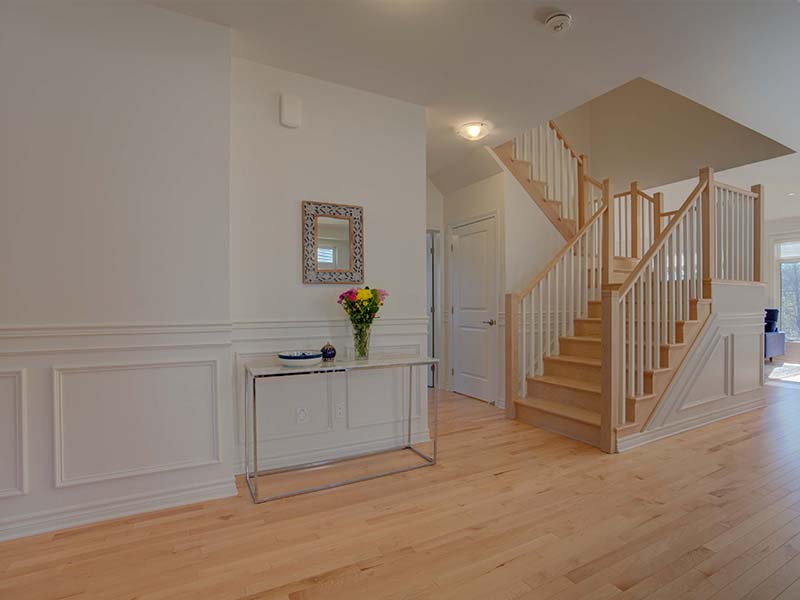
Negotiating
When you make an offer on a home, the seller will have the option to accept, counter, or reject it. If the seller accepts your offer outright, the process will move much faster. But if they counter it, you’ll have to respond with a better offer until they accept. You will go back and forth until you come to an agreement.
You will enter into negotiations for the price, terms, and other particulars of the sale. This is where your agent comes in. They will protect your interests by negotiating fair terms. It is particularly helpful to know the seller’s reasons for selling during negotiations. This will help you determine how motivated they are to sell their Kingston house and what kind of terms they might consider favorable.
Finalizing financing
When applying for a mortgage, consulting with multiple lenders will help you find the one with the best terms and rates. It’s generally advisable to talk to two to three lenders. This will give you a point for comparison and help you find the best offer on the market.
Once you decide on a lender, you’ll have to gather the necessary documents to qualify for a loan. These often include financial documents like bank statements, payslips, income tax returns, and more.
The Canada Mortgage and Housing Corporation (CMHC) advises that your total monthly housing costs, including utilities and maintenance on top of mortgage payments, should ideally not be more than 30% of your monthly income. Moreover, CMHC advises that your total debt payments (including mortgage, credit card debt, student loan, and car loan payments) should not exceed 40% of your monthly income.
When buying a home in Canada, you can approach a bank or a mortgage broker. A mortgage broker will have in-depth knowledge of the marketplace as well as access to favorable rates. They also know how to evaluate applications from borrowers with non-traditional sources of income, such as self-employed buyers, contractors, and business owners.
If your down payment is less than 20%, you’ll need to purchase mortgage default insurance from an insurer like CMHC or a private company. This protects the lender from financial risks in the event that you are unable to make mortgage payments.
Getting a home inspection
No matter how much you love a home, skipping a home inspection is never recommended. A home inspection will help you identify any potential defects with the property. A professional home inspector will typically produce a report with photos and detailed information of their findings. They will inspect the ceiling, basement, HVAC system, and main structure of the home.
You may require specialized inspection services for a waterfront property, or a massive property with on-site tennis courts, swimming pools, and other high-end amenities. An inspection will help you determine whether the home is truly worth the price you’re paying.
Pre-closing
It’s generally advisable to schedule a pre-closing visit before the closing date. During this visit, you can conduct a final walkthrough or inspection of the property to make sure that it is still in the same condition as when you made an offer. This is particularly helpful if negotiations have taken months to finalize, or if there have been extreme weather occurrences that may have affected the property before the deal was finalized.
Closing
If you’re satisfied with the home inspection report and you’ve come to an agreement with the seller, you can proceed to close the sale. In Ontario, it’s common practice to work with a real estate lawyer who registers the transfer of property at the concerned government office.
When working with a real estate lawyer, you can expect to meet them about two to three days prior to the closing date. You will be working with a purchaser’s lawyer, who will gather all the documents needed to transfer the title as per the seller’s lawyer. They will help you go over the mortgage and purchase documents and explain the terms before having you sign.
You can ask your real estate lawyer to order title insurance on your behalf. This will protect your investment against the possibility of fraudulent claims, title defects, survey issues, and work orders when you take ownership of the property.
You should also be ready to produce the amount needed for your down payment or deposit money in order to close the sale. You can provide a money order, certified cheque, or bank draft. The seller’s lawyer will receive the money from your lawyer to close the transaction.
Your lawyer will also send the signed documents to the Land Titles office for registration. Once the seller’s lawyer receives the money from their buyer’s lawyer, the keys to your new Kingston house will be turned over to the buyer. You can arrange for cable or internet installation services on the property on or shortly after the closing date.
Find the perfect Kingston house with a local expert
Kingston is one of the most desirable places to live in Ontario.
The Krishan Nathan Group
is here to help you find a home that meets your standards. We are a client-oriented, results-focused real estate team serving clients in
Kingston, Amherstview, and South Frontenac.
Call us at (613) 572-2665 or send us an email here
.
As a team of dedicated professionals, we work to protect your interests 24/7. Established in
2008, we are the Top Agent for Units Sold in Kingston in 2021. We’d love to share our knowledge and expertise of the market for your benefit.

